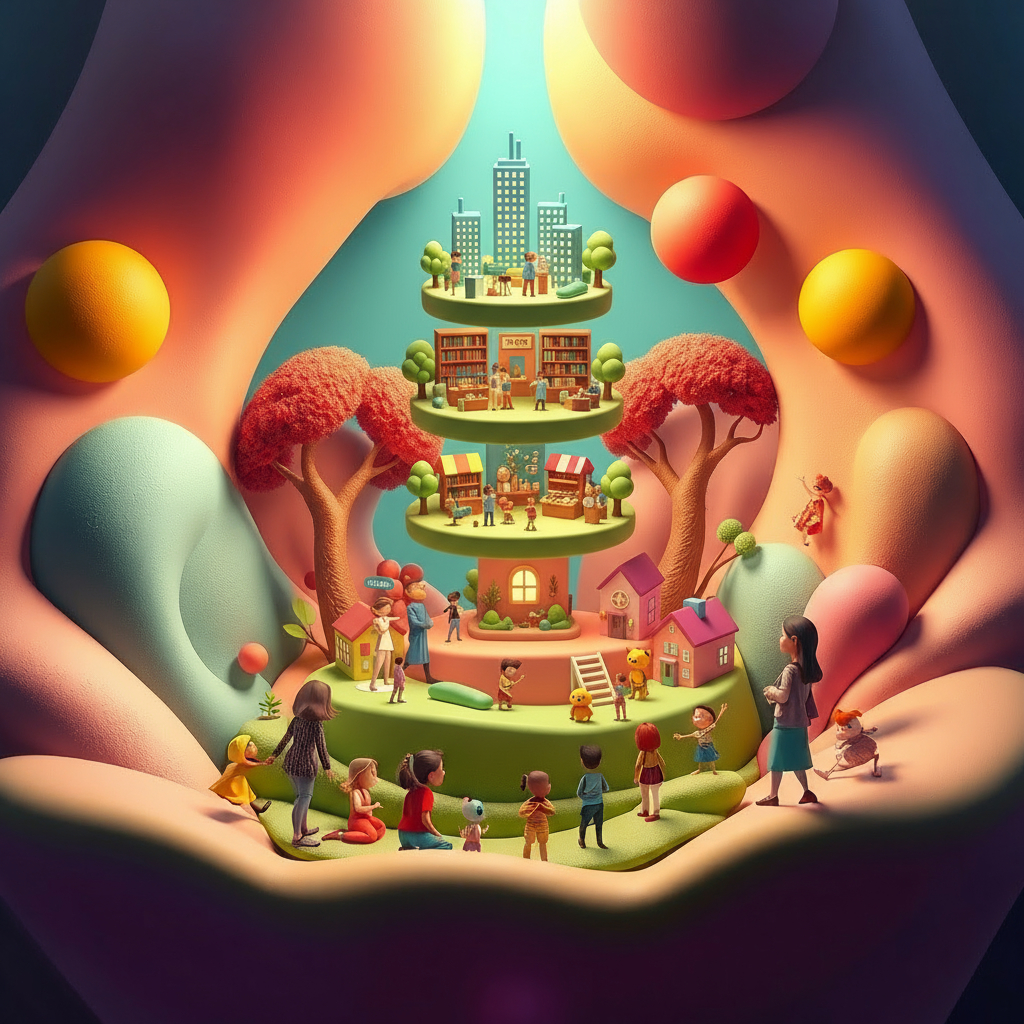A media campaign that utilized age-appropriate, practice-trained chatbots to provide initial support, offered educational content for parents, and focused on enhancing mental health literacy for families. It also included infographics for sharing with other health professionals, as well as social media and blog content.

![<subject>[interface] screenshot of collaboration interface (for a productivity tools business)</subject>](https://cdn.prod.website-files.com/689d604b5a324249f356a470/68f064750d612d0c31bb7bb4_8ab033a4-a36c-4aeb-8e96-0e6ae2441e72.jpeg)
.png)

Client: Dr. Jennifer T. Family Therapy Practice Owner
Role: Functional medicine physician with growing practice
Organization: 5-person integrative health clinic
Mission Statement: "To empower patients to achieve optimal wellness through personalized, evidence-based integrative medicine that addresses root causes."
Number of impressions: 2,336
Target audience reach: 1,680
Number of clicks to website via reels: 312
Number of inquiries: 144
Number of likes and comments: 398
Number of appointments scheduled: 36
Number of new patients reached: 33
Competing with "Dr. Google" and wellness influencers spreading pseudoscience. Needs to establish authority while remaining approachable and not appearing "salesy."
Budget: $2,000-4,000 monthly for ongoing content
The ecological model's application to Dr. Rodriguez's teen mental health campaign proved successful because it addressed anxiety intervention across multiple interconnected systems rather than focusing solely on the individual adolescent. This comprehensive approach recognized that teen mental health exists within nested environmental contexts that simultaneously influence treatment outcomes.
The campaign also incorporated age-appropriate chatbots to offer initial support, allowing teens to express their experiences more clearly and accurately. This approach provided anonymity and immediate assistance, helping to destigmatize the process.
The interpersonal level engaged family systems through parent-focused educational content ("Mental Health Monday" series and blog posts), equipping caregivers with recognition skills and evidence-based response strategies. This addressed the reality that parental mental health literacy significantly predicts adolescent treatment adherence and outcomes. These were later shared with other practictioners in the field and more iterations of it have been developed since the original version.
Narrative Approach: Centering the Adolescent Experience
The campaign employed a patient-centered narrative strategy through "Anxious Alex," a fictional 16-year-old persona navigating the concurrent demands of academic performance, peer relationships, and family expectations while privately experiencing untreated anxiety symptoms. This first-person perspective was intentionally selected to authentically represent the lived reality of contemporary adolescents facing unprecedented environmental stressors—including social media pressures, academic competition, and limited access to confidential support systems. By centering Alex's subjective experience rather than adopting a clinical or parental viewpoint, the narrative strategy aimed to reduce stigma, normalize help-seeking behaviors, and demonstrate accessible pathways to evidence-based mental health support for teens experiencing similar struggles in isolation.
The ecological framework's success stemmed from its recognition that sustainable behavior change—whether initiating therapy, improving parental response patterns, or reducing stigma—requires simultaneous intervention across multiple influence spheres. By meeting stakeholders where they were (teens on anonymous digital platforms, parents consuming social media content, families searching for credible medical information) and addressing barriers at each ecological level, the campaign created multiple pathways to engagement rather than relying on a single intervention point. This systems-level thinking transformed Dr. Rodriguez from a competing voice in a crowded wellness marketplace into an integrated resource embedded within her target audience's existing decision-making ecosystem.
We approach every project with a fresh perspective, adapting to the evolving needs of public health communication. Our methods are informed by real-world experience and ongoing learning.
By integrating design, video, and strategic messaging, we help you reach your audience and drive positive outcomes. Our work is grounded in clarity, accessibility, and real-life experience.
Our work supports a range of public health initiatives, from wellness campaigns to educational outreach. We help you communicate complex topics in a way that’s easy to understand and act on.
We offer flexible service packages—small, medium, or custom—to fit your project scope and budget. Explore our self-service options or connect for a tailored solution.
Branded content and campaigns for wellness, health, and local agencies—delivered with a decade of public health expertise.
We provide branded social media, videography, video campaigns, logo design, and event videos—tailored for health and wellness organizations.
Our clients include local public health agencies, wellness brands, and organizations seeking effective, professional health communications.
With 10 years as a public health educator, we combine creative skills with deep sector knowledge for impactful, compliant campaigns.
Choose from small, medium, or custom packages on our self-service page. Each is designed to fit your project’s scope and budget.
Yes. We have extensive experience managing multi-channel, systems-level health campaigns from strategy through execution.
We start with a needs assessment, then develop a tailored creative plan, ensuring clear communication and measurable results.